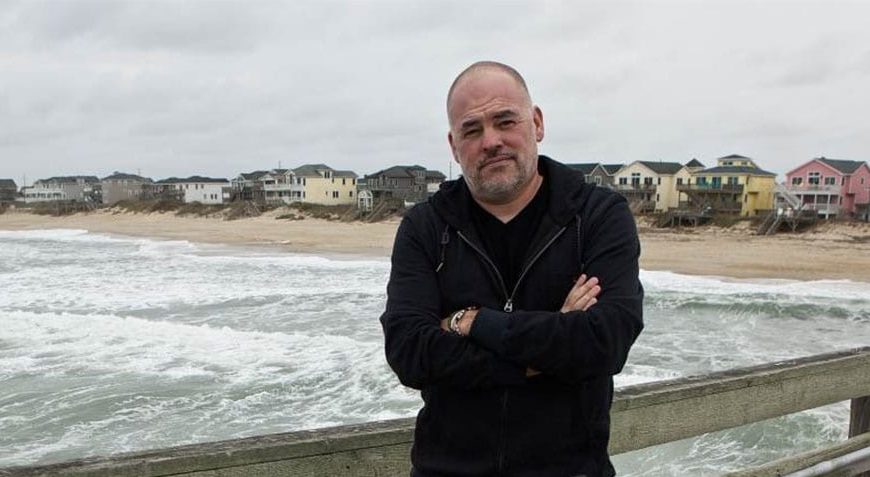
Goddard College is an institution that prides itself on its progressive ideals. We don’t give tests and grades at Goddard, and that’s a blessing. But real life out there does offer some big tests, doesn’t it? Even if they don’t have the word TEST written in big capital letters over them. Even if they never offer a letter grade.
The life tests I want to talk about are literary, the ones you face out there in the world after you graduate. Let’s start small with readings and the following scenario (a true story): You’re invited to read at your local public library. You arrive on the appointed night only to find a single person, a man, seated in the middle of a veritable sea of empty chairs. Now the test is not whether to call off the reading at this point; you’re a trooper and the show must go on! You give the man a courteous nod, leap into your reading, and give it your all—give it the same grandstand rendition you would for a packed house. Halfway through, however, there’s a disturbance. You look up. A side door opens and three police officers enter the room. They walk up to the man, arrest him, and lead him out handcuffed.
What do you do now?
Answer: You go on reading! If a tree falls in an empty forest and no one is around to hear it, does it make a sound? Yes! If you are reading in an empty hall, does anyone hear you? Yes they do! Yes! Yes!
And in our true life story, that’s exactly what the writer did.
On to test 2: You have submitted your fine, many times revised story “A Good Day for Bananafish” a grand total of 31 times with no luck. What next? (a) You keep revising and revising and revising until every word feels like a tombstone with your name engraved on it—and keep sending it out. (b) You just keep sending it out with no revisions—screw them and the horse they rode in on! (c) You decide the story is no good and either put it permanently in the drawer or—gulp—erase the file! (d) You put the story aside for a little while and come back to it after you’ve written something new.
The best answer, in my opinion, is (d). That many rejections tends to make a story, even a very good story, a little radioactive. Even if you decide not to make any more changes, it needs time to cool off–from submitting and revising alike. Too much revising can beat the life out of a story. Try going back to the story after you have something new under your belt and see what you think of it. If the story still looks good (with maybe a few more tweaks, maybe not), then go on to (d) and start sending it out again.
But what about novels? Novels take a long, long time to write and to rewrite. Getting your novel rejected lots of times also involves years and years of effort. (Add a few more years if you decide to get an agent first). So here comes test 3: What if your first novel gets rejected 30-40 times, and your second one does, too? Then what?
So many responses are possible that I won’t even try to put them in a multiple choice format. Let’s just say off the top that giving up writing altogether is not on the list. Writing novel number 3 is, if that’s what your gut tells you to do. If you look at the figures, it’s most often novel number 2 or 3 that becomes a writer’s “first” novel, in terms of publication. But every case is different. Every case is different.
Suppose, however, you’ve labored years over those two novels that didn’t get published and you just don’t want to write novel 3, or for some deep reason you can’t. Here we’re excluding not writing novel 3 because you’ve concluded you must be a crap writer since your first two novels were resoundingly rejected. None of us would ever buy into that because we’re the folks who give our best reading to an empty room, right? But sometimes an inner voice needs listening to, a voice that says, “Don’t write that novel 3. Write something completely different.” Case in point is again my own: I spent over a decade writing two novels that never got published despite the best efforts of a top agent and glowing feedback from editors.
My first response to this double whammy was choice (a) above, particularly with my baby, a novel set on the Great Barrier Reef of Australia. I wrote and rewrote and rewrote some more. I so wanted that novel to see the light of day! Now obsessive persistence is one of the traits a writer needs to survive in the world, but the net result of my unrelenting efforts in this case was to turn a vibrant, lively watercolor into a dead oil painting full of too-perfect sentences. If I were ever to go back to it now, I would face the near-impossible task of undoing all that strangled rewriting, sentence by sculpted sentence.
Meanwhile, underneath, a different kind of flower was trying to bud. I’d always had a yen for critical and scholarly writing, a yen long suppressed after dropping out of graduate school. So I said to myself: If I can’t get my novels published, then I’m going to write about the literary and intellectual traditions they belong to! I’m going to give myself a literary genealogy! And that put me on the strange and exciting path that resulted in the two nonfiction critical books The Secret Life of Puppets and Gothicka.
And my return to fiction came about as a direct result of those two books. At one scholarly conference a medievalist friend took a look at Gothicka, about the Gothic in modern pop culture, and said, “Have you ever heard of Christina the Astonishing, the medieval saint with comic book superpowers?” Well, I hadn’t, and when I looked up Christina a light bulb went off and the result was a novel about that 12-century Flemish saint who came back from the dead and her adventures in a postapocalyptic northern California.
This has been a longform version of answer (d) from life test 2 above, responding to rejection by putting the work aside for a little while and taking up something new. In the case of my fiction writing, “a little while” meant upwards of fifteen years, but what a rich and mind-opening journey through the literary life it gave me!
If I were to distill all my own literary experiences into answers to a series of life tests, they would be: Pay attention to the outside cues. Listen to the feedback. But first and foremost: Trust yourself! Trust the process! And when in doubt, remember that the best answer to any of life’s tests, literary or otherwise, is always Yes.







